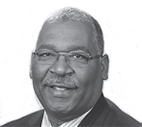
DANIEL McCLOUD
We’re living in a world of cosmic slop, cast back into the primordial pool. I escape from this madness through reading; literature is one of my safe havens, and if Jay-Z can travel first class to change the forecast, as he rapped about in classic, Song Cry, then surely a good book can take me away from the madness. Unfortunately, many of my favorite works have come under scrutiny and become weaponized and politicized in the ongoing misinformation campaign.
Books considered literary works of art by many are now being portrayed as tools of division by guilt mongers. Among the books currently being banned in schools across the country, all of which I own and have read include Beloved and The Bluest Eye, by Toni Morrison, The Autobiography of Malcolm X, by Alex Haley, and Their Eyes Were Watching God, by Zora Neale Hurston. Noteworthy is the fact that these novels gained even greater popularity following the summer of 2020 when the nation erupted in protests following the murder of George Floyd.
Following the 2020 elections and the Jan. 6th insurrection, there became a new focus on voter suppression and targeted efforts to change the narrative of blaming the victim to becoming the victim.
The state of the country now seems like a chapter torn from the pages of Ray Bradbury’s 1953 dystopian novel, Fahrenheit 451, which chronicled a society where books were banned. In that novel, books are burned in attempts to maintain society’s happiness, believing that if people didn’t form opinions, then there would be less conflict, and society would be happier.
Does this sound familiar?
Enslaved Blacks were not permitted to read or write, rationalizing that somehow illiteracy would make them docile and content, resulting in less conflict.
Additionally, let’s not forget the second component of the book banning strategy: for individuals to rid themselves of guilt. For example, according to an article written by Anthony Zurcher and published by the BBC, a state legislator in Texas contends that these books cause students to feel “discomfort, guilt, anguish or any other form of psychological distress.”
Unsurprisingly, many of the books being banned are by African American authors, who only seek to have their voice heard regarding the discomfort, anguish, and psychological distress experienced from 400 years of slavery and 73 years of Jim Crow. Not to mention the guilt felt by Black men and women who were powerless to stop their families from being torn apart and the husbands and wives brutally beaten and raped. African Americans continue to suffer from the lingering effects of this post-traumatic stress disorder.
So when will we get to tell our story? Why isn’t our story important? And why doesn’t everyone need to hear our story? For years the only curriculum devoted to the contributions of African Africans was a brief acknowledgment that slavery did exist. However, there was no mention of the thousands who died from lynchings, how we arrived on these shores, nor observations of the enormous wealth accumulated by enslavers.
Sadly it was only after I began attending Florida A&M University, a Historically Black College, that I began to learn of the true history of this country and the many untold contributions of African Americans, much of which was found in the pages of African American literature. The banning of books should not erase history. Instead, these works belong to everyone and should be available in K-12 libraries and should not be pawns in misguided political discourse. Instead, these books should be used as the points of origin for developing strategies to address this country’s social and economic disparities.

Recent Comments